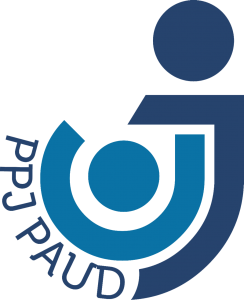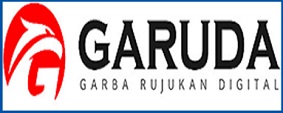The Effect of Assertive Discipline on Early-Aged Children’s Gadget Addiction
DOI:
https://doi.org/10.26555/jecce.v2i2.1002Keywords:
early childhood, discipline assertive, gadget addiction,Abstract
The study aimed to find out the effect of assertive discipline on the children’s gadget addiction in a kindergarten in Semarang City. The present study was categorized into quantitative study. The population of the study was students and their parents in 2018/2019 academic year, there were 60 students and 60 parents, the samples were taken using purposive sampling technique. The data were collected using questionnaire filled by the parents. The analysis result found that the F value was 118,649 and Sig. = 0,000. Sig. value was lower than α = 0,05, meaning that H0 is rejected. It was found that assertive discipline significantly affects the early-aged children's gadget addiction. The study found that assertive discipline affects gadget addiction by 83.8%. While the other 16.2% was affected by other factors. It could be seen that assertive discipline possesses dominant effect on gadget addiction.
References
Ameliola, S., & Nugraha, H. D. (2013). Perkembangan media informasi dan teknologi terhadap anak dalam era globalisasi. Prosiding In International Conference On Indonesian Studies" Ethnicity And Globalization.
Ananda, R. (2017). Implementasi nilai-nilai moral dan agama pada anak usia dini. Jurnal Obsesi: Jurnal Pendidikan Anak Usia Dini, 1(1), 19–31.
Aulina, C. N. (2013). Penanaman disiplin pada anak usia dini. PEDAGOGIA: Jurnal Pendidikan, 2(1), 36–49.
Corey, G. (2013). Teori dan Praktek Konseling & Psikoterapi. PT. Refika Aditama.
Dewantari, T., & Izzaty, R. E. (2018). Assertive Training On Discipline of Learning in Junior High School. The International Journal of Counseling and Education Vol, 3, 57–62.
Jazariyah, J. (2017). Pengembangan PAUD Berbasis Keluarga untuk Meningkatkan Ketrampilan Pengasuhan. Al-Hikmah: Indonesian Journal of Early Childhood Islamic Education, 1(1), 1–24.
Novitasari, W., & Khotimah, N. (2016). Dampak penggunaan gadget terhadap interksi sosial anak usia 5-6 tahun. PAUD Teratai, 5(3).
Palupi, Y. (2015). Digital Parenting Sebagai Wahana Terapi untuk Menyeimbangkan Dunia Digital Dengan Dunia Nyata bagi Anak. 4.
Pamungkas, H. W., Sos, S., & Si, M. (2014). Interaksi Orang Tua Dengan Anak Dalam Menghadapi Teknologi Komunikasi Internet. Jurnal Tesis PMIS Untan.
Pebriana, P. H. (2017). Analisis Penggunaan Gadget terhadap Kemampuan Interaksi Sosial pada Anak Usia Dini. Jurnal Obsesi : Jurnal Pendidikan Anak Usia Dini, 1(1), 1-11–11. https://doi.org/10.31004/obsesi.v1i1.26
Purwaningsih, E. (2012). Keluarga Dalam Mewujudkan Pendidikan Nilai Sebagai Upaya Mengatasi Degradasi Nilai Moral. Jurnal Pendidikan Sosiologi Dan Humaniora, 1(1).
Rahmat, S. T. (2018). Pola asuh yang efektif untuk mendidik anak di era digital. Jurnal Pendidikan Dan Kebudayaan Missio, 10(2), 143–161.
Setianingsih, S. (2018). Dampak Penggunaan Gadget pada Anak Usia Prasekolah Dapat Meningkatkan Resiko Gangguan Pemusatan Perhatian dan Hiperaktivitas. Gaster, 16(2), 191–205. https://doi.org/10.30787/gaster.v16i2.297
Sihura, F. (2018, November). The Role of Parents ‘Generation of Z’ to The Early Children in The Using of Gadget. 4th International Conference on Early Childhood Education. Semarang Early Childhood Research and Education Talks (SECRET 2018). https://doi.org/10.2991/secret-18.2018.9
Siwi, I. N., & Safitri, O. R. (2019). The Prevention Of Gadget Addiction And Temper In Children Through Consistency Of Parenting Patterns. ABDIMAS Madani, 1(1).
Warisyah, Y. (2019). Pentingnya pendampingan dialogis orang tua dalam penggunaan gadget pada anak usia dini. Seminar Nasional Pendidikan 2015, 0(0), 130–138.
Wulandari, C. M. (2016). Analisis dampak pengunaan teknologi gadget terhadap perilaku siswa di SD Muhammadiyah 4 Batu [PhD Thesis]. University of Muhammadiyah Malang.
Wulansari, N. M. D. (2017). Didiklah Anak Sesuai Zamannya: Mengoptimalkan Potensi Anak Di Era Digital. Visimedia.
Downloads
Published
How to Cite
Issue
Section
License
Authors who publish with this journal agree to the following terms:
- Authors retain copyright and grant the journal right of first publication with the work simultaneously licensed under a Creative Commons Attribution-ShareAlike 4.0 International License that allows others to share the work with an acknowledgement of the works authorship and initial publication in this journal.
- Authors are able to enter into separate, additional contractual arrangements for the non-exclusive distribution of the journals published version of the work (e.g., post it to an institutional repository or publish it in a book), with an acknowledgement of its initial publication in this journal.
- Authors are permitted and encouraged to post their work online (e.g., in institutional repositories or on their website) prior to and during the submission process, as it can lead to productive exchanges, as well as earlier and greater citation of published work (See The Effect of Open Access).















